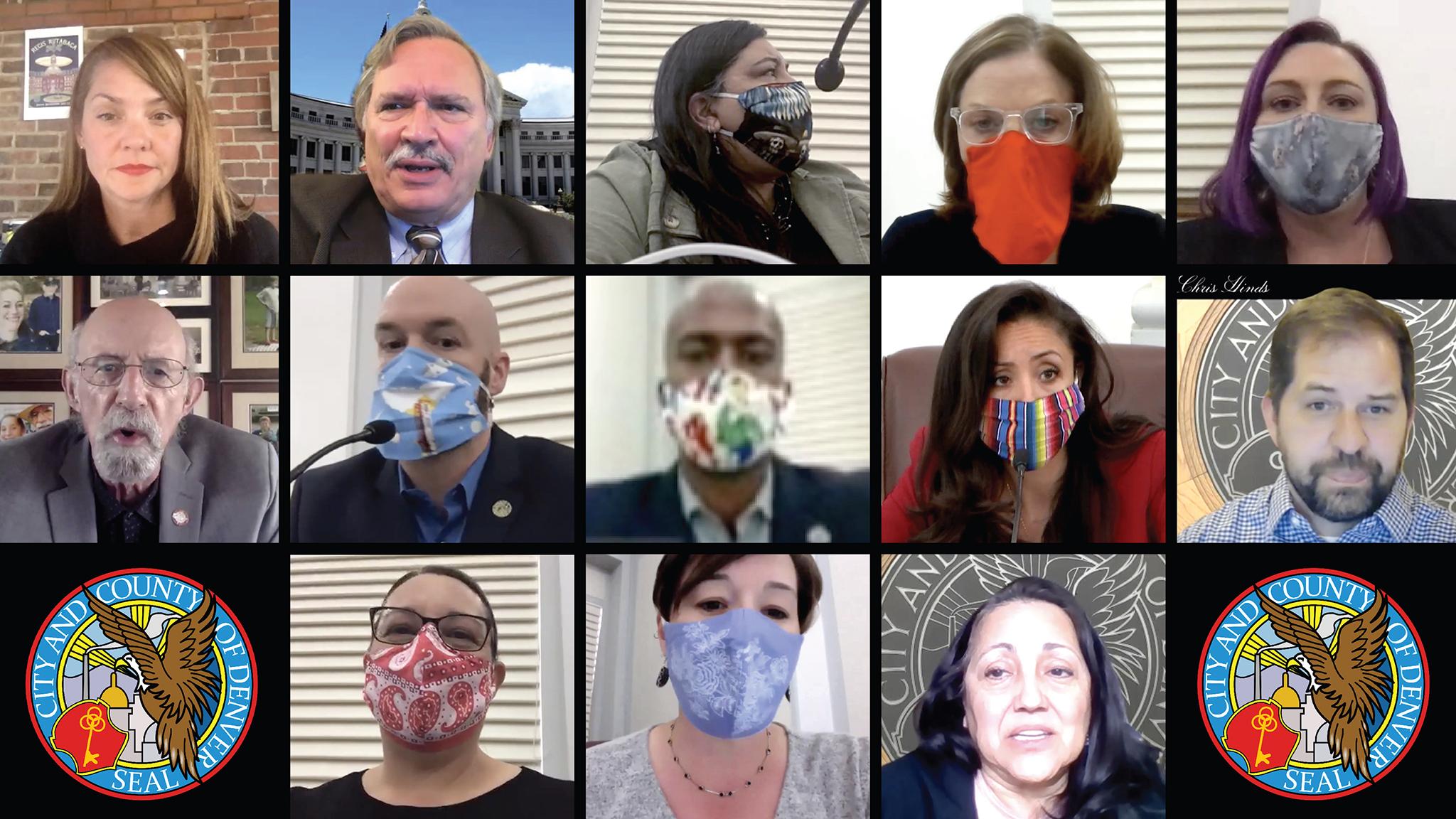Denver City Council signed off on salary hikes for Denver police officers Monday. But in some ways, the raises were settled as soon as Mayor Michael Hancock and council butted heads over the union's new contract earlier this year.
In September, the council rejected the original contract, submitted by the Hancock administration, that would've given officers raises in 2022 following a year without paid holidays. Hancock argued that the raises of 2.8 percent were a fair trade for $5 million in savings in 2021, a year full of budget cuts. Councilmembers who rejected the contract said it was unfair to promise raises for law enforcement while other city employees were being furloughed. Some members felt like rejecting the contract was an opportunity to reform the department by funneling fewer dollars to it. And most felt left out of negotiations from the beginning.
With negotiations at an impasse, the contract went to a third-party arbitrator to decide who gets what. Each side -- the city government and the police Denver Police Protective Association -- was to give its final offers to the decider, who would choose one or the other.
The union's final offer, the lowest raise it would accept, was identical to the original contract -- 2.8 percent. But Mayor Hancock and the council could not agree on a figure, so they submitted nothing. The arbitrator gave police the raise they asked for.
The council and the mayor count as one entity, according to the City Attorney's Office. Denver's charter doesn't allow the city government to submit multiple offers -- just one.
"It was not a 'decision,'" wrote Ryan Luby, spokesperson for the City Attorney's Office, in an email. "It was a reality."
In an email, the Hancock administration declined to share the contents of negotiations with councilmembers that led to the non-offer. According to emails obtained by Denverite, however, Hancock stuck by his initial offer of a 2.8 percent pay hike for police, while some councilmembers were willing to give raises of between 1.5 and 2 percent. That impasse led to no final offer from the city.
The City Attorney's Office "is not aware of a time previously" when the council and mayor could not agree on a final offer to submit, Luby said in a statement.
In a statement, City Councilmember Candi CdeBaca said, "It is not a coincidence that the same contract that Council voted down magically ended up being the exact same contract that the arbitrator approved." The City Attorney's Office represents the mayor and the police department, which CdeBaca called an "inherent conflict of interest." She hinted at creating a law to make closed-door negotiations public.
"Denver's Charter very clearly lays out the process requiring equal representation from both the mayor's office and City Council during negotiations," CdeBaca said. "But because Council has not safeguarded the process via an ordinance to require transparency and timely notice, we are left with an egregious backdoor, bad-faith negotiation right before the city gets hit with a wave of excessive force litigation."
CdeBaca was referring to a wave of claims against the department for its handling of this summer's protests against racism and police brutality.
A city attorney told council members that the legislative body must ratify the arbitrator's decision. Councilmember Robin Kniech was visibly upset with the process but said she would vote for the contract.
"But as an elected official I cannot stand silent without an observation, which is that this outcome happened because of a disappointing failure to good-faith negotiate with this council," Kniech said. "And I will say that that, in my opinion, was a perversion of the charter and requires a systematic solution such that the good faith obligations extend between the branches of government in the same way that they do to our bargaining partners across the table."
Council President Stacie Gilmore, who took up her leadership post around the same time negotiations began, said the result of the contract "is not what the supermajority of this council wanted." But she said the bumpy road that led to the contract's adoption has spawned new protocols that make the legislative branch a bigger player in collective bargaining negotiations.
"Council has held our ground," Gilmore said. "We are now viewed as an equal partner in the negotiation process, which, as we all know, we haven't been viewed as an equal partner in a very long time."
The council approved the agreement by a vote of 10 to 3. Councilmembers Gilmore, Kniech, Jamie Torres, Amanda Sandoval, Chris Herndon, Paul Kashmann, Kendra Black, Debbie Ortega, Jolon Clark and Kevin Flynn voted for the contract. Councilmembers CdeBaca, Amanda Sawyer and Chris Hinds voted against it.













